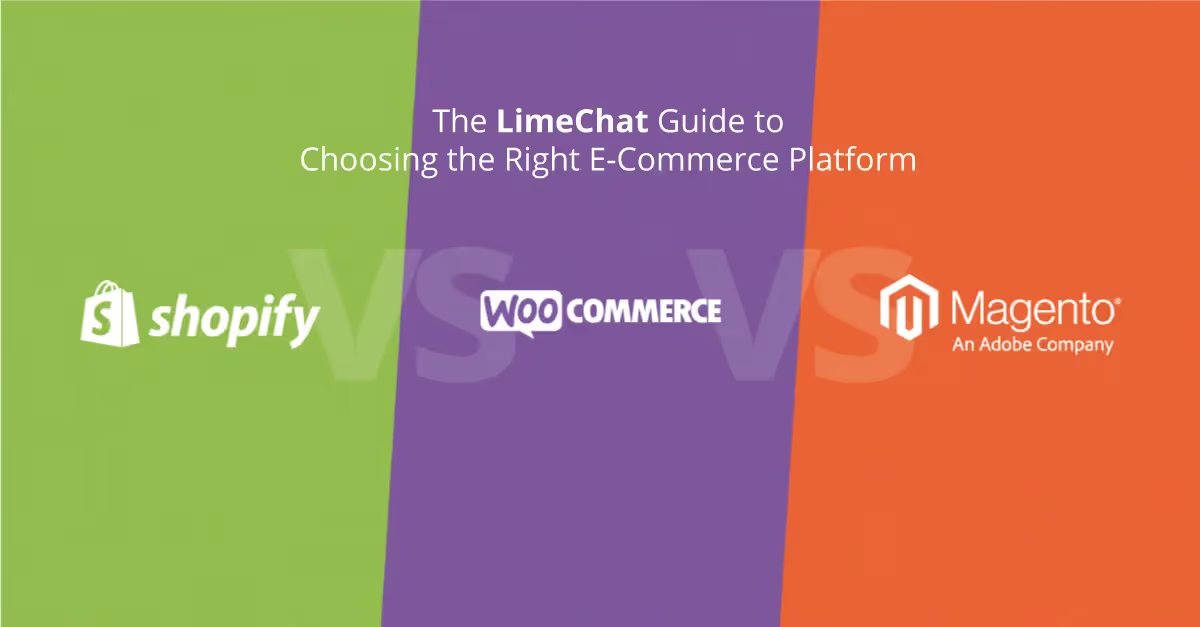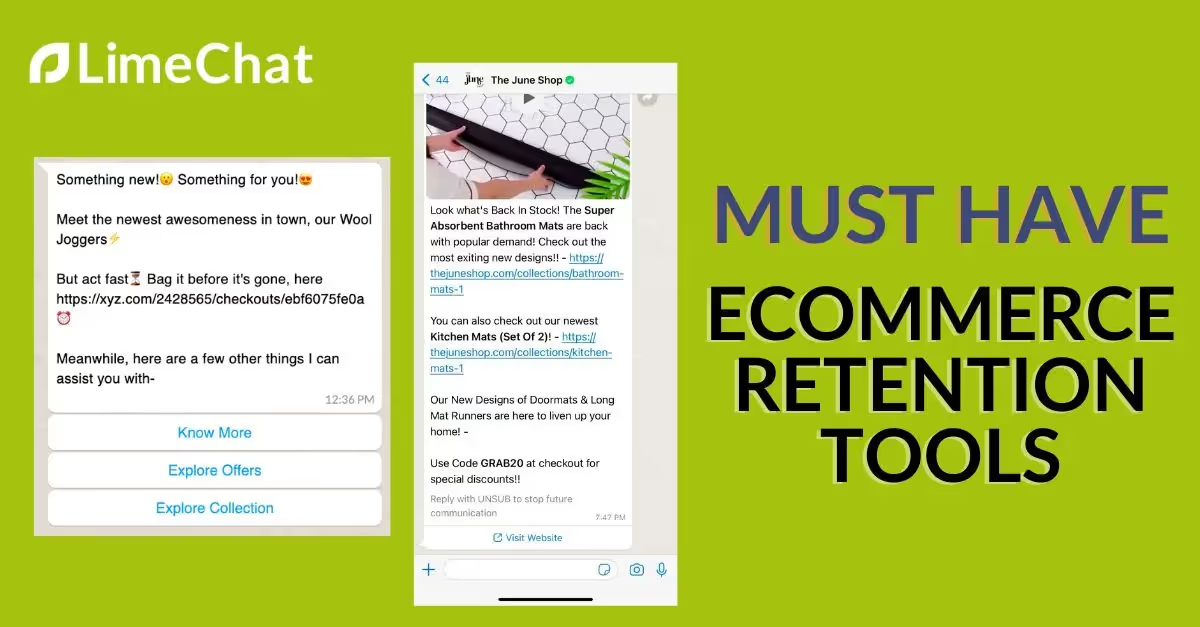Shopify vs WooCommerce vs Magento (2022) – Which is the Best E-Commerce Platform?

If there was ever a ‘perfect’ time to create a website for your business, it would be right now. But with so many options, how do you find the best e-Commerce platform for your brand?
Maybe you’re looking for a store with easy navigation, or the ability to scale quickly. Or you want to be able to customise the store to your heart’s content and have secure payment gateways.
Whichever among these is your goal, we have reviewed each of these platforms according to what e-commerce companies are looking for.
Check out our in-depth guide to the best e-commerce platforms below to find out the perfect fit for you.
What is an e-commerce platform?
An e-commerce platform is a software that gives online retailers the tools they need to launch and manage all business operations.
Many of the most popular e-commerce platforms today help you to:
- Launch your store
- List your products and services
- Manage orders
- Process payments
- Track inventory
- Provide customer support
- Build your brand
This wide-ranging functionality makes e-commerce platforms the very foundation on which your business will thrive.
How do you choose the right e-commerce platform?
There are many things to consider when choosing an e-commerce platform.
This can get overwhelming, especially since the best e-commerce softwares are constantly being updated with newer features.
So let’s get down to brass tacks
In your quest for the best e-commerce platform for your business, make sure to consider the following:
Ease of Use
Imagine signing up with one of the top e-commerce platforms available to you.
As you navigate the dashboard, you find it complicated.
Why is this bad news? Because chances are that a complicated setup means trouble managing day-to-day functions too.
So make sure to choose a platform that is easy to use right from the get-go.
You should find it easy to:
- create new products and pages
- manage products and orders
- edit and update pages across your website
- collect payments
- track orders
SCALABILITY
Faulty website performance can be costly for a business.
Amazon’s Prime Day sale in 2018 illustrates this well.
Despite the widespread attention, they were unprepared to handle the surge of traffic.
Customers were left unable to complete purchases.
This went on for a whole hour and it cost Amazon million dollars a minute.
And this can happen to any business, big or small.
So make sure to check if the platform of your choice offers scalability in terms of:
- Handling high volume of sales and peak traffic
- Increasing inventory
- Upholding load balancing (a uniform, speedy experience to all customers online at a given moment)
- Allowing you to host multiple stores
SECURITY
From malware and hackers to data leaks and server attacks, your website is vulnerable to a wide range of security threats.
If you’re eyeing a free e-commerce platform, know that you’re leaving yourself open to these kinds of risks.
But paying for a good e-commerce platform can guarantee you tight protection.
The features you should look out for include:
- Multiple methods of identity verification (like 2-factor authentication and multi-factor authentication)
- Site encryption (SSL certificate)
- Increased security of data transfer (HTTPS)
- Firewall configurations
- Safe, reliable gateways for transactions
WEBSITE BUILDING FEATURES
One of the first things you’ll notice when you compare e-commerce platforms is the difference in their design capabilities.
Many of them offer set themes.
This is convenient if you’re just starting out and want a simple setup.
Maybe design and branding is more important. The flexibility to customize your site is ideal in this case.
Look for such tools based on what your needs are now and will be in the future.
EXTENSIONS AND ADD-ONS
Last of all (but most exciting!), is the capacity to add unique plugins that extend the functionality of your website.
Several of the most popular e-commerce platforms offer a long list of customizations, extensions, third-party apps, and other such add-ons.
Here’s a glimpse at what you can do:
- Create and analyze rich customer profiles
- Offer discounts and gift codes
- Set up different marketing integrations (blogs, SEO, email, etc)
- Accept payments through multiple gateways
For instance, integrating chatbots to introduce personalised messaging has been proven to increase conversion rates and build brand loyalty. Why wouldn’t you jump at that opportunity?
What are the top e-commerce platforms you should consider?
While there’s a long list of e-commerce platforms to choose from, we narrowed the list down to three of the most used e-commerce platforms.
Shopify, WooCommerce, and Magneto.
What will work best for your brand? Let’s find out.
WooCommerce – The Perfect Companion for WordPress Users

As a WordPress plug-in, WooCommerce was the answer to the content management system’s (CMS) need for an e-commerce add-on.
The plug-in enables WordPress users to convert their existing websites into a store, enabling sale of products and services without having to create another website from scratch.
WooCommerce advantages and disadvantages
The platform has open-source features, which allows you to custom-build as per your requirements.
But, there’s a catch.
Building your website will have you relying on additional apps or your own custom coding.
With limited security and scalability, the risk of a site crash or data loss increases the more you build your web]site.
Key Takeaway
WooCommerce is a great budget-friendly option as long as you’re looking to sell on a simple interface
Magneto – build customized websites with an extensive community

This e-commerce platform is also built on open-source technology,
But if we compare e-commerce platforms, Magneto offers more powerful functionality than WooCommerce.
Magneto’s most unique element is its large community of developers that offer creators advice with great insights.
Magneto advantages and disadvantages
If you’re looking to completely tailor your website or increase scalability and security by a significant margin, Magneto should be your go-to platform.
It allows easy expansion of stores, so you can go from a handful of products to thousands all at once.
However, these customizations require that you know your way around complex coding and web development.
Sooner or later, you’ll need to hire an experienced developer to keep things running smoothly.
Key Takeaway
Magneto offers stronger customizations and features, but is costlier and more complex.
Shopify – a high performing plug-and-play platform

Unlike its counterparts, Shopify is not an open-source platform.
But this doesn’t limit its capabilities.
In fact, it is one of the main benefits of Shopify.
Shopify advantages and disadvantages
Despite the lack of customization, users love the wide variety of set design templates on offer.
The Shopify ecosystem is also home to a host of third-party apps and extensions.
With so many integrations and templated solutions, a user’s experience remains hassle-free.
However, the inability to edit underlying code may prove limiting to those looking for a more custom look and build for their website.
But this is only for stores that have extremely unique needs that are not readily available in the market.
This is rarely the case, which is why Shopify is often considered the best e-commerce platform.
Shopify’s high performing scalability and security features also remain unrivalled, and this is reflected in the platform’s prices.
Key Takeaway
What Shopify lacks in customization and budget-friendliness, it makes up for in functionality, add-on features, and performance.
The final verdict – WooCommerce vs Magneto vs Shopify
While WooCommerce and Magneto offer extensive customizations, using them requires expert knowledge of each platform.
And as your business grows there can be difficulty managing scalability and security.
Clearly, the benefits of Shopify outweigh WooCommerce and Magneto in terms of ease of use, scalability, and security.
But what about pricing?
Even here, our best bet is that Shopify is the best e-commerce platform for you, no matter the size of your company.
Here’s why-
- With WooCommerce and Magneto, you’ll be shelling out extra cash to afford customizations, additional apps, and hiring web developers and designers
- Magneto gets pricier since every extra item you install incurs an additional fee
- Shopify, too, requires the installation of third-party apps for increased functionality. But their extensive library offers both paid and free variations of everything
- You won’t have to pay through the nose to hire a web developer, designer, or strategist. Branding and design are made a lot simpler and economical with templates.
Which is the Best E-Commerce Platform in India?
Shopify is held in high regard globally, but is it the right fit for an Indian brand?
The short answer? Yes.
From an Indian perspective, the top e-commerce platform offers some unique functionalities that cater to Indian audiences.
For starters, cybersecurity is not India’s strongest suit. Shopify’s top-level measures will handle that.
Second of all, the boom in the number of mobile users across India has increased the demand for mobile-friendly stores, and even regional content.
Shopify optimizes your website for mobile readiness in advance, making sales seamless so that you never lose a prospective customer.
With regard to the rising need for vernacular content — Shopify has several third-party apps that translate your website through code or by a professional agency.
How Level 3 AI chatbots Can Rapidly Increase your Shopify Conversions
It can be easy to get carried away when installing numerous third-party apps on Shopify.
Who doesn’t love the idea of increasing their website’s functionality?
But if you’re not careful, this could result in higher costs.
Instead, be choosy about your add-ons.
Consider what results you would like to see for your brand.
For most brands, it’s higher conversion rates, which grows profits and lowers customer acquisition costs.
And LimeChat helps you achieve exactly that.
What is LimeChat and how does it work?
Our Shopify app is a chatbot designed to create automated buying experiences across platforms like your Shopify website, WhatsApp, and Messenger.
We are the only players to use Level 3 AI technology, which is the only technology capable of human-level interactions in chat.
It equips your business with the ability to engage with customers in a highly personalized manner with a natural flow of conversation.
This enables deeper connections and clearer communication, making it a lot more likely they’ll make a purchase.
With LimeChat, conversion rates through the consumer journey are up to 2 to 3 times higher than that of typical websites.
So what are you waiting for?
Choose the best for you and your customers with LimeChat, and schedule a demo today.
Transform your marketing and support today






